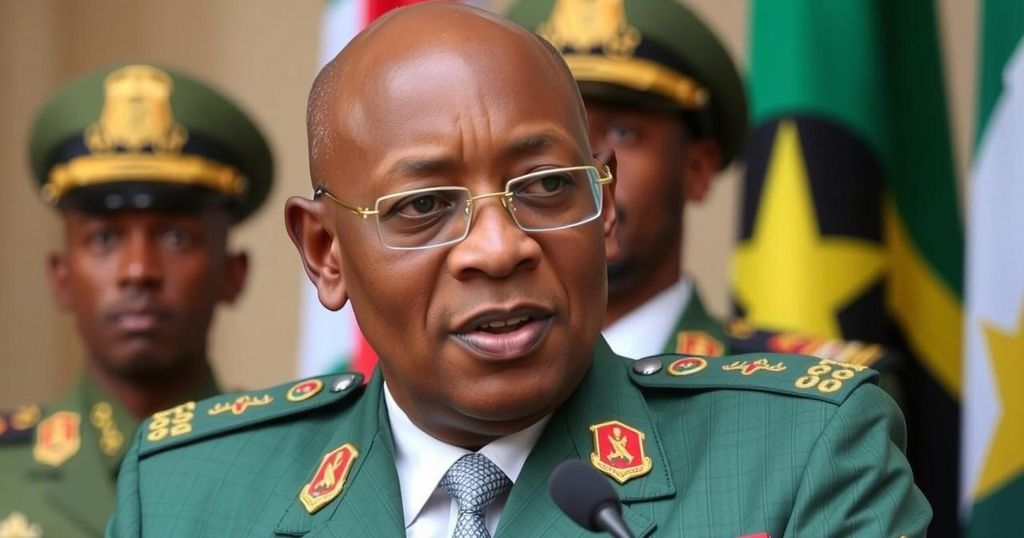South Sudan President Salva Kiir has dismissed the military chief, police chief, and central bank governor amid ongoing internal unrest, including unpaid soldier wages and previous security concerns. These changes reflect the ongoing instability in the nation’s leadership and economic struggles since the civil war, with frequent leadership shifts particularly in the finance ministry.
In a significant reshuffle, South Sudan’s President Salva Kiir has dismissed the military chief, police chief, and central bank governor, as reported by the state-owned South Sudan Broadcasting Corporation (SSBC). The announcement made on a late Monday provided no explanations for these decisions, which included the promotion of Paul Nang Majok to the position of chief of defence forces, replacing General Santino Wol. Security insiders noted that dissatisfaction within the army may have contributed to these changes, highlighting that numerous soldiers had not received their payments for nearly one year.
This latest change follows a series of previous dismissals, including Akol Koor Kuc, who was removed as head of the National Security Service earlier this year. The central bank has experienced instability, with James Alic Garang being replaced by Johnny Ohisa Damian, who returns to his former position after his removal just last month. Furthermore, Abraham Peter Manyuat was appointed the new Inspector General of Police, taking over from Atem Marol Biar.
The shaken leadership reflects ongoing turbulence within the South Sudanese government, particularly in the finance sector, which has seen frequent leadership changes. This financial instability is compounded by the country’s economic struggles post-civil war, which began in 2013 and has displaced about a quarter of the population. Despite a peace agreement established in 2018, sporadic violence continues to disrupt efforts toward national stability, prompting the postponement of national elections until December 2026.
Major General Lul Ruai Koang, the army spokesperson, and Information Minister Michael Makuei have not provided comments regarding these dismissals, leaving the rationale behind these significant changes unclear. Recent events, such as gunfire in the capital Juba stemming from an attempted arrest, underline the ongoing security concerns in South Sudan.
The recent dismissals by President Salva Kiir come amid a backdrop of continued instability and unrest within South Sudan, which has struggled to maintain peace since civil conflicts erupted in 2013. The government has faced challenges, particularly with the military and financial sectors, that have yet to stabilize despite a 2018 peace agreement. These changes indicate a response to both internal pressures and the dire economic conditions affecting the country, including unpaid wages for military personnel.
The dismissals of key figures in South Sudan’s military, police, and financial sectors illustrate President Kiir’s attempts to address internal unrest and dissatisfaction within the armed forces. As the nation grapples with a depressed economy and ongoing violence, these leadership changes highlight the fragility of South Sudan’s peace process and governance structure. With the next national elections postponed until late 2026, the path toward stability remains uncertain.
Original Source: www.arabnews.com






